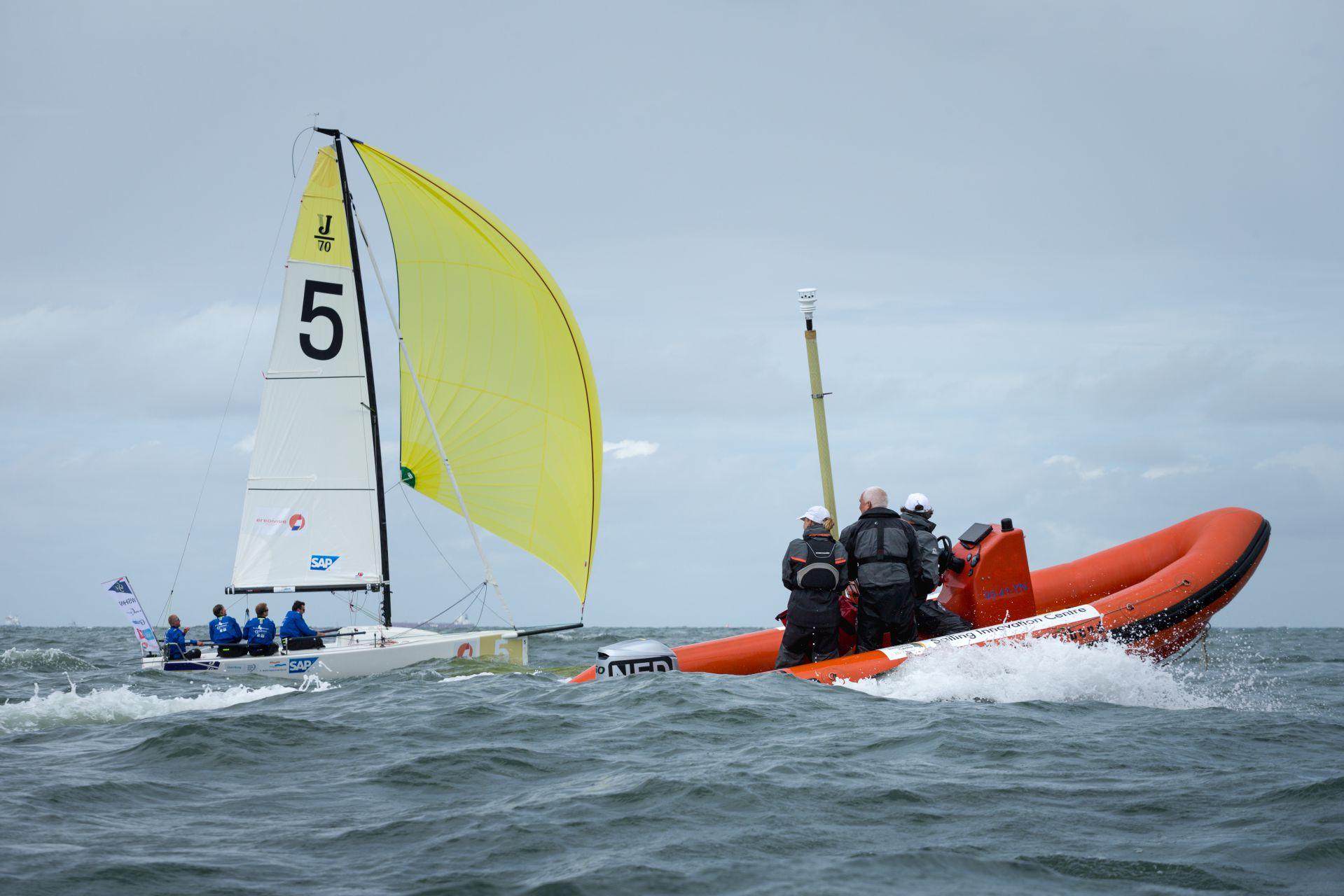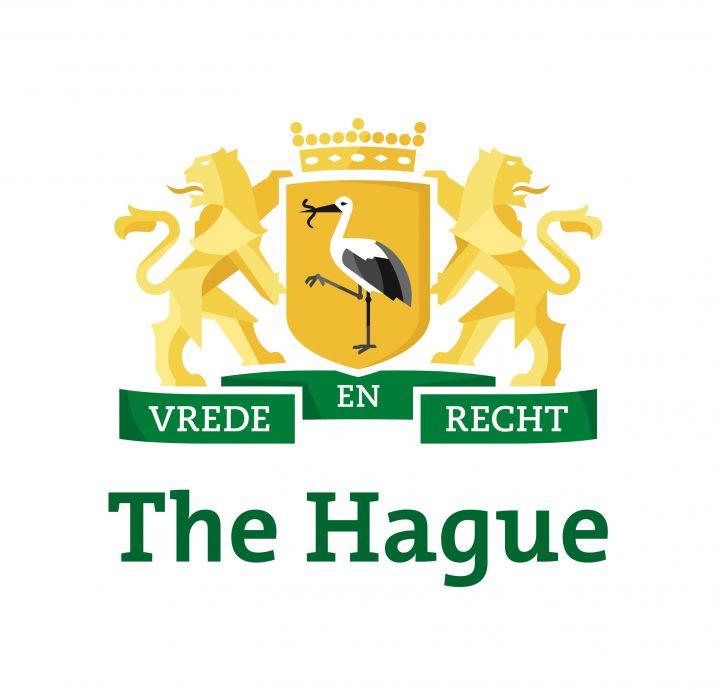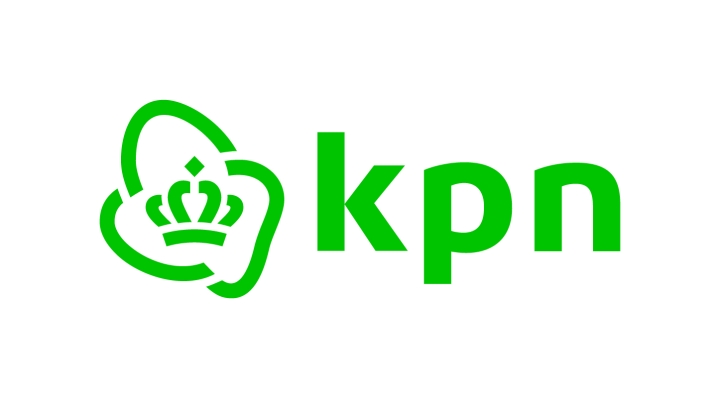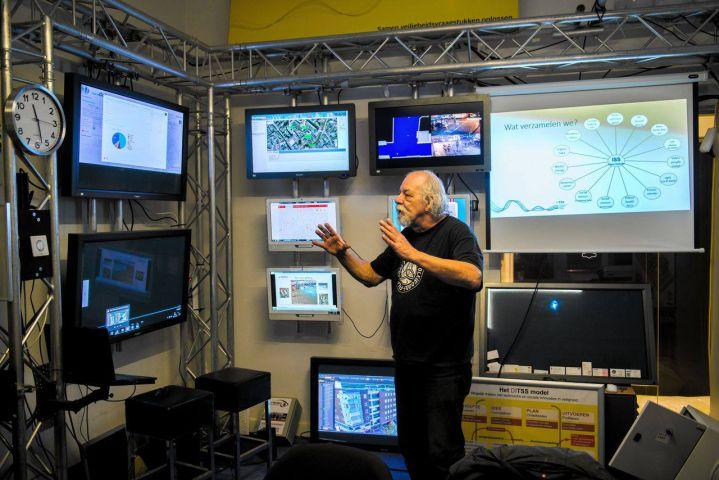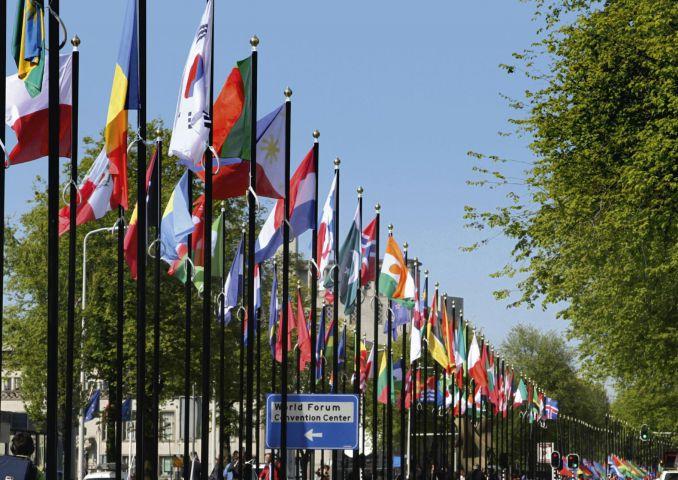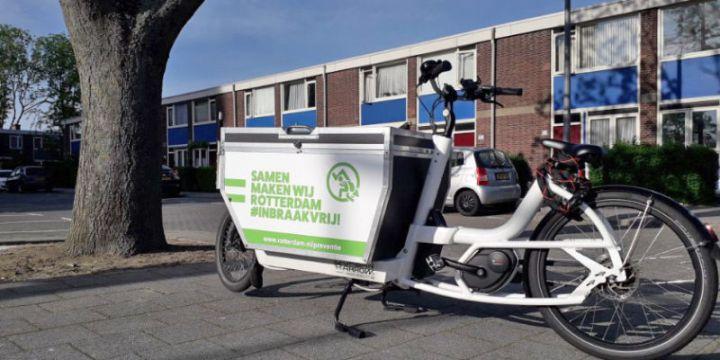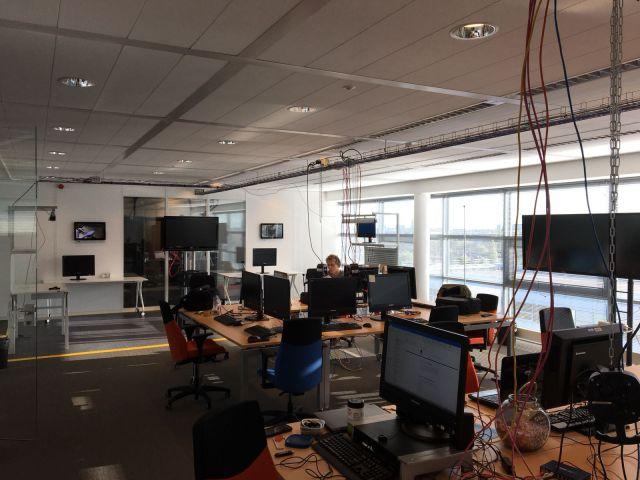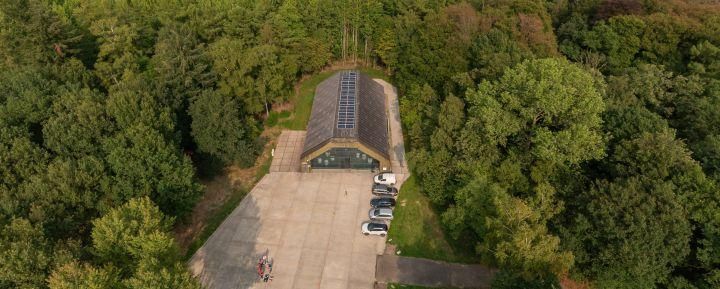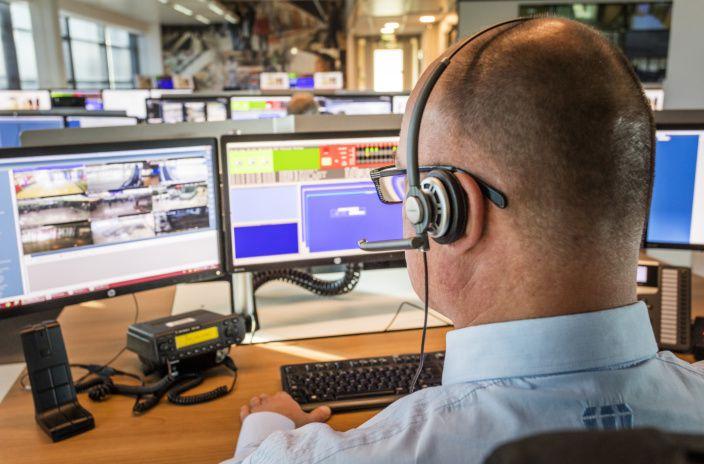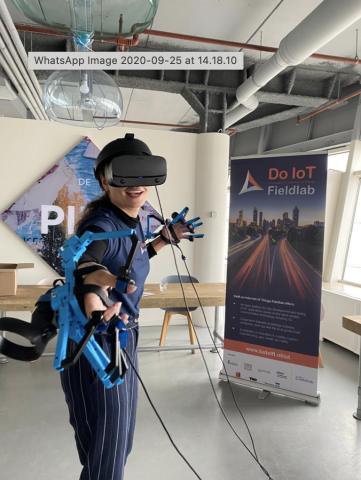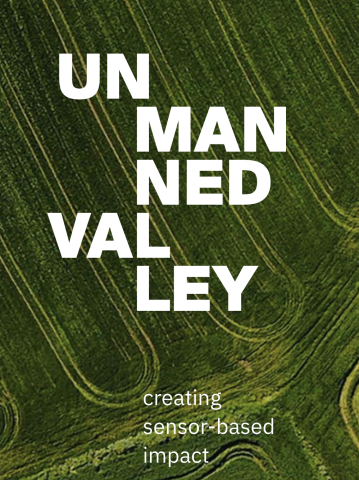Living Lab on the North Sea
Connecting all sorts of (IoT) sensors and smart systems to collect data is now common practice. On land, that is. The North Sea is an unexplored territory. It is scarcely possible to collect or send data to the mainland for storage and analysis. Although water sports, safety, sustainability and the economy would greatly benefit. A 10 by 10 nautical mile living lab will bring the much-needed change.
The origin of this living lab lies with the Sailing Innovation Centre and TU Delft. They have the desire to innovate the Olympic sailing team, but note that this is difficult because of the conditions at sea. The collection and analysis of data to give feedback to athletes and to adapt trainings is not as easy as on the mainland. The measuring and communication equipment must meet completely different requirements, such as robust, salt-resistant and waterproof. The idea of a living lab at sea is embraced by the municipality of The Hague. It sees opportunities for making the port, fishing and offshore services smarter. This advanced piece of North Sea off the coast of Scheveningen removes the barriers that hamper the testing of innovations at sea.
Approach
The ‘Living Lab on the North Sea’ facilitates measurement and monitoring activities at sea, far beyond the coast. The consortium that launches this living lab will set up a basic facility that will measure wind, current and wave height and make this data available via a Data Portal. A comprehensive dashboard visualises and analyses this data to support companies wishing to develop innovative products on this basis. For this purpose, a robust (Internet) connection to the shore is used, which also enables the streaming of high-resolution images and the real-time processing of data. Companies are given the opportunity to test their products under realistic conditions. The living lab offers a range of opportunities for innovations at sea.
Innovations
Several innovative projects are currently underway in the Living Lab on the North Sea, such as:
- Sailing
Data on the sailing boat (position, angle of inclination, speed and course) and sea conditions (wind, current and waves) are combined with the actions of the athletes. This data enables improving feedback and training. The same information combined with real-time streaming of images makes the sport attractive to the general public. - Current models
The current influences the work of pilots who sail ships in and out of the port. An even more detailed picture makes this work easier. The current can also be taken into account when sailing up and down to wind farms in order to save time and fuel. For the North Sea farm, detailed insight is interesting in order to determine the influence on seaweed harvesting. - Safety
It can take hours before it is noticed that a surfer is missing. A surfing club is researching a sensor that can raise the alarm and tracking technology that shows the location of the surfer. Together with TNO, the Royal Netherlands Sea Rescue Institution (KNRM) is investigating how drowning people can be found more quickly. For instance, by looking back in time to see how the current has developed, and by using a drone to increase the search range.
Business
As the coordinator, TU Delft's ambition is to set up the living lab in such a way that it can also exist without subsidies. This is why a fee is charged for the use of facilities, such as the Data Portal, to cover further development and maintenance. It is also possible to become a partner and gain access to the living lab at sea. The various forms of partnership are being further developed. The ‘Living Lab on the North Sea’ must grow into an ecosystem of companies and organisations where knowledge exchange and cross-pollination take place.
Participation
Companies with a good idea are welcome at this living lab. Start-ups and SMEs are given the opportunity to test and demonstrate their products. The Municipality of The Hague has set up an incentive fund for them. More information can be obtained from the subsidy office of the municipality.
Partners in the consortium ‘Living Lab on the North Sea’ are: TU Delft, Sailing Innovation Centre, Watersportverband, Municipality of The Hague, KPN, TNO and Svasek Hydraulics.
Contact Details
Living Lab on the North Sea
Anoek van Vlaardingen
TU Delft
Coordinator Sports Engineering Institute
E: a.vanvlaardingen@tudelft.nl
M: +31 6 24 46 28 04
I: www.proeftuinopdenoordzee.nl




